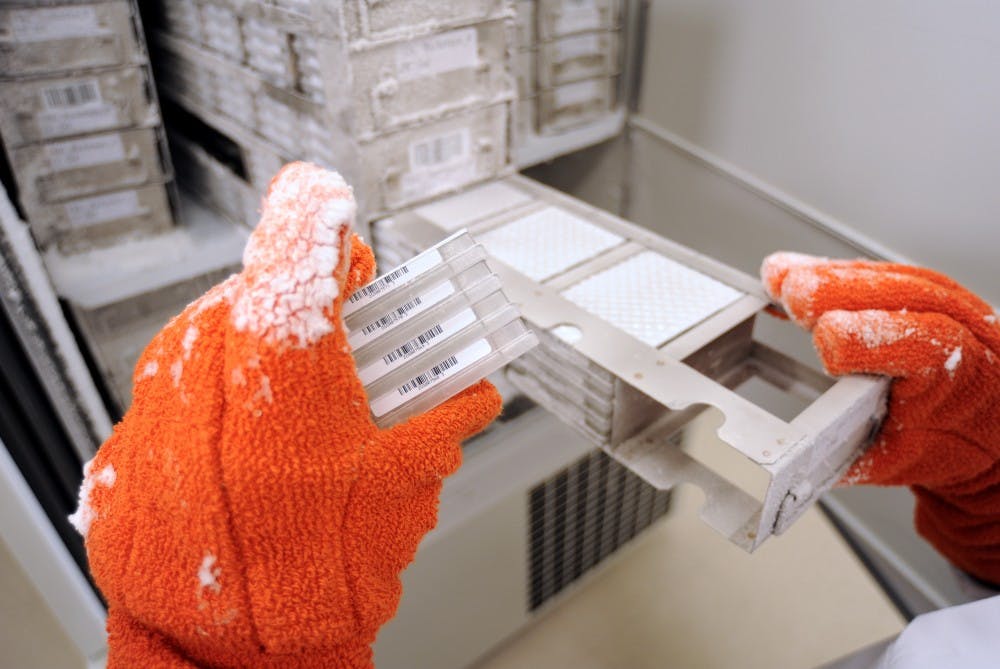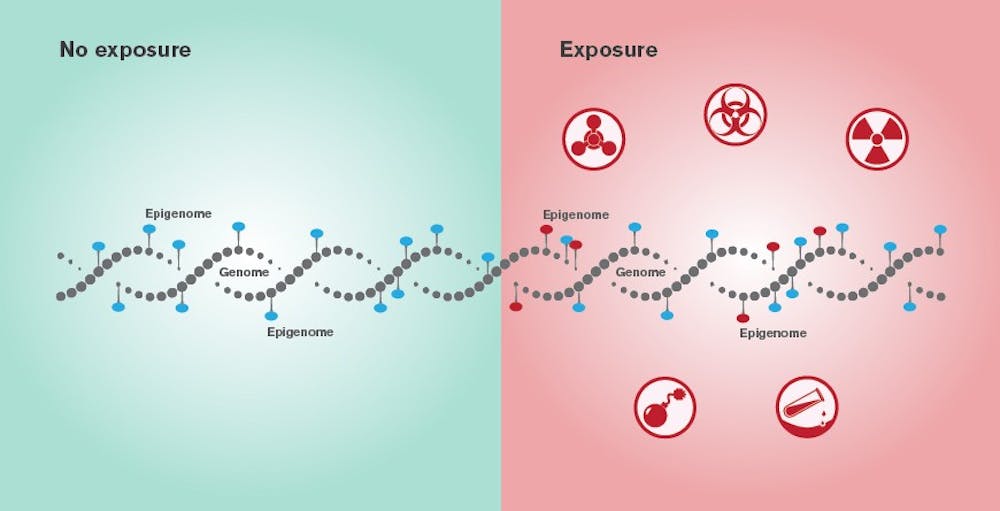The ASU Biodesign Institute is leading a project to create a field device that can detect traces of material in human DNA associated with weapons of mass destruction.
The $38.8 million project called Epigenetic Characterization and Observation program, or ECHO, is funded by the Defense Advanced Research Projects Agency and is led by principle investigator and University faculty member Joshua LaBaer.
The device will be able to identify whether an individual has ever been exposed to such material by examining the signatures in their epigenome to help quickly diagnose military personnel.
"The epigenome is biology’s record keeper," according to DARPA's website. "Though DNA does not change over a single lifetime, a person’s environment may leave marks on the DNA that modify how that individual’s genes are expressed."
Vel Murugan, a research scientist at the Biodesign Institute working on the project, said that earlier detectors for WMDs required samples to be sent to a lab for identification and had no way of telling what chemicals a person had been exposed to or for how long.
"Those are the finer details we can get from this technology because this actually comes out of a person's body," Murugan said. "You can actually take a drop of blood and then identify whether they were exposed to a WMD or not."
Testing for the device will take place in secure locations away from ASU's campus to limit the exposure of harmful material.
"This will be done under strict regulatory compliance, and we have a process in place to acquire samples from different places at different locations throughout the United States," Murugan said. "So, this technology will not be tested on-campus."
Eric Van Gieson, the program manager for ECHO, said in an email to The State Press that recent advancements in epigenetic research to treat cancer was a significant inspiration for the ECHO project.
Van Gieson also said that ASU has been included in DARPA projects before. However, these past projects did not influence DARPA's choice to work with ASU on the project.
"ASU has worked with DARPA extensively in the past," he said in the email. "While those past efforts did not play a role in why ASU was selected for ECHO, they do reflect that researchers at the University embrace DARPA’s mindset and are willing to take on the high-risk projects that we favor."
The Biodesign Institute has a number of scientific programs that will be used for the ECHO project, said Dianne Price, director of marketing and communications for the Biodesign Institute.
"ASU is in a somewhat significant position to be able to do this because at Biodesign, we have multiple disciplines that are needed," she said.
According to DAPRA's website, "ECHO is focused specifically on diminishing the threat posed by WMD and improving diagnostics for troops who may have been exposed to threat agents."
However, because of possible applications of the technology, DARPA "intends to proactively engage with several independent ethical and legal experts" in the research and development of the device.
"We want the researchers we work with to be willing to take on high-risk efforts with the possibility of high payoff if they succeed," Van Gieson said.
Reach the reporter at cbudnies@asu.edu and follow @Chase_HunterB on Twitter.
Like The State Press on Facebook and follow @statepress on Twitter.





